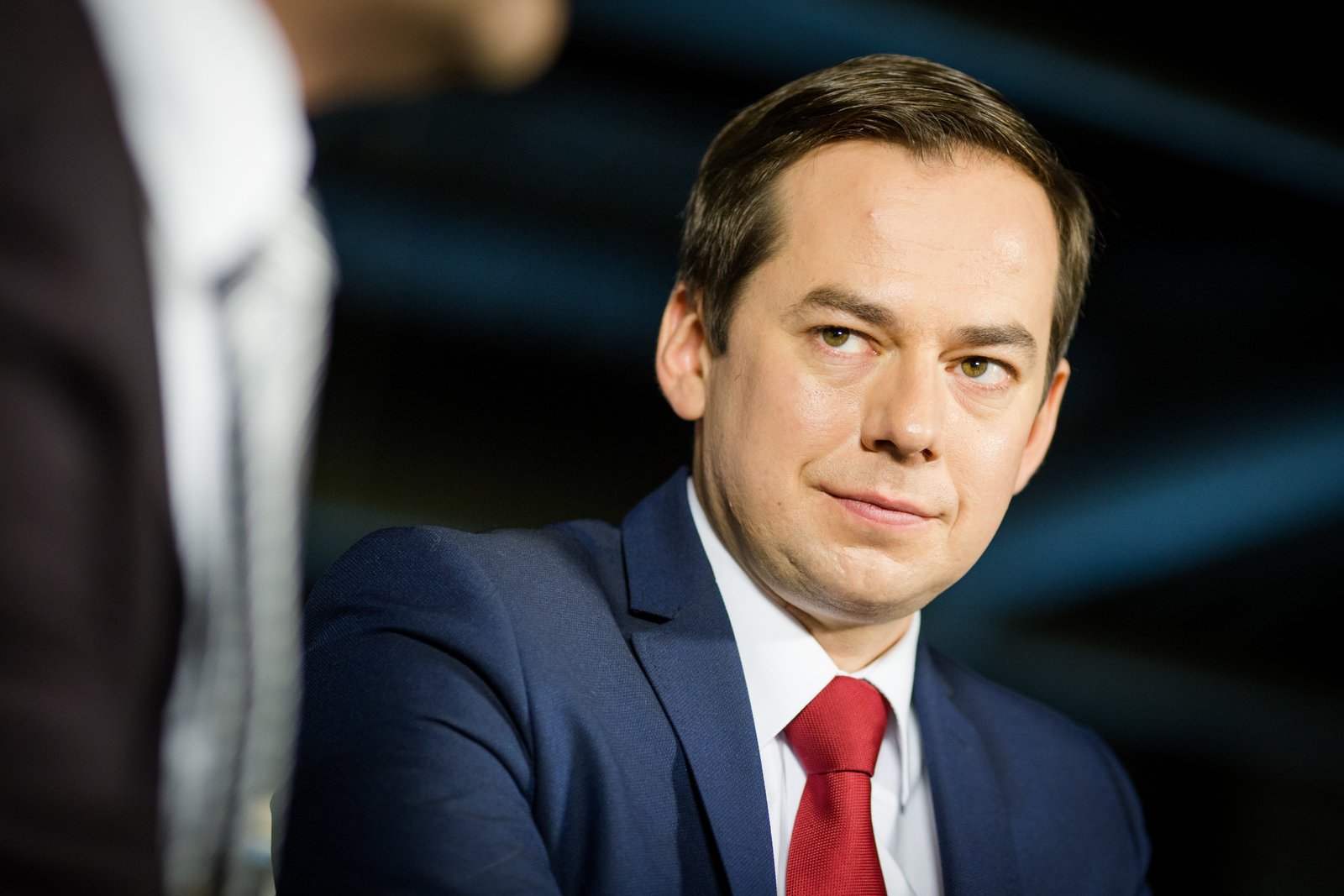

Arnoldas Pranckevičius DELFI / Šarūnas Mažeika
As Europe’s attention is back on Belarus after this weekend’s shamefully and brutally rigged presidential elections, I can’t but revisit the complicated and frustrating path of the EU’s relations with this important neighbouring country, Arnoldas Pranckevičius, the Head of the European Commission Representation in Lithuanian wrote in his Facebook post in his personal capacity on August 11.
I happened to watch this relationship very closely for 11 years, while working in the European Parliament, first as desk officer for Belarus, Ukraine and Russia and later as an adviser on Eastern policy to Presidents Jerzy Buzek and Martin Schulz. In fact, one of my first tasks, when I started in the EP in January 2006, was to set up and run the situation room to observe the presidential elections in March, where democratic opposition was for the first time rallying around one common candidate Aliaksandr Milinkevich.


He was later nominated for the Parliament’s prestigious Sakharov Prize for Freedom of Thought and the EP was in the lead to push for strengthened EU sanctions against Belarusian regime following a crackdown on civil society and arrests of democratic opposition leaders.
Throughout this period I attempted to enter Belarus five times with different EP election observation and fact-finding missions but was always denied a visa. My last time in Minsk was in 2004, when I was still working for President Adamkus in Lithuania. It is a strange feeling to be now living 40 kilometres away from the country, where I haven’t travelled in 16 years, whilst for instance to Ukraine my professional journey took me more than 50 times.
This also somehow reflects the sorry state of affairs between the EU and Belarus. It is the only Eastern Partnership country, with which we have no single agreement, the last partnership and cooperation agreement was signed in 1995 but never ratified due to the human rights situation in the country. In contrast, with Ukraine, Georgia and Moldova we have functioning Association Agreements and visa-free regimes, with Armenia and Azerbaijan – cooperation and visa facilitation agreements.
Belarus is the only European country, which is not a member of the Council of Europe due to still exercised the death penalty. Its formal integration with Russia, in economic and military terms, with a common union state, is the closest of any other country.
A timid recent attempt of the EU to sign Partnership Priorities with Belarus remains frozen due to non-implementation by Belarus of stress tests recommendations regarding the nuclear safety of the controversial Ostrovets nuclear power plant. All of this explains why the famed soft power of the EU in its neighbourhood and its ability to transform societies from within, building democratic and accountable institutions, didn’t have much chance to be successful in Belarus.
The self-isolation of the regime, its high reliance on the Kremlin’s support, systemic and long-term suppression of free media, independent judiciary and democratic opposition has limited the West’s leverage on the country to a bare minimum. Moreover, the regime of President Lukashenka has all but ruined any trust and has on numerous occasions frustrated and betrayed European leaders.
All attempts to directly engage the regime during last two decades – from Javier Solana, Benita Ferrero-Waldner and Stefan Füle to Dalia Grybauskaitė, Radek Sikorski and Guido Westerwelle – have all failed and resulted in even larger fraud in the elections and the bigger crackdown on civil society.
Throughout those years I saw the EU move from sanctions to gradual re-engagement to conditional dialogue to sanctions again. A closed circle, a sense of déjà-vu and the same feeling of frustration that no single policy mix really works with Belarus.
Lukashenka, meanwhile, has masterfully crafted his own policy mix of blackmailing both Brussels and Moscow, playing one against another, and trying to receive concessions from both sides with only one aim – survival of his own regime.
So this brings us back to today. A déjà vu of sorts again. But something has significantly changed. And that is the society of Belarus. It has finally woken up and no longer wants to be treated as a card in Lukashenka’s personal game. It wants back what belongs to it – the ability to exercise its free will and the right to have democratic elections. Therefore, the response of the Western community to current events also shouldn’t be business as usual. The fatigue and the frustration of the past, the indifference and the scepticism, should not be the guiding principle of the policy. The active engagement and clear support for the society of Belarus should be the answer.
While Prime Minister Gintautas Paluckas does not take issue with the statements made by the…
Lithuanian economists are surprised to see our country's economic growth: the Estonian economy has been…
"The fate of Nemuno Aušra (Dawn of Nemunas) in the coalition has been decided; they…
Airvolve, a Lithuanian dual-purpose aeronautics company, has successfully completed its first round of testing and…
The world is becoming smaller, more intertwined, and increasingly fragmented, with many of the previous…
In recent years, Vilnius, the vibrant capital of Lithuania, has experienced a culinary renaissance. While…